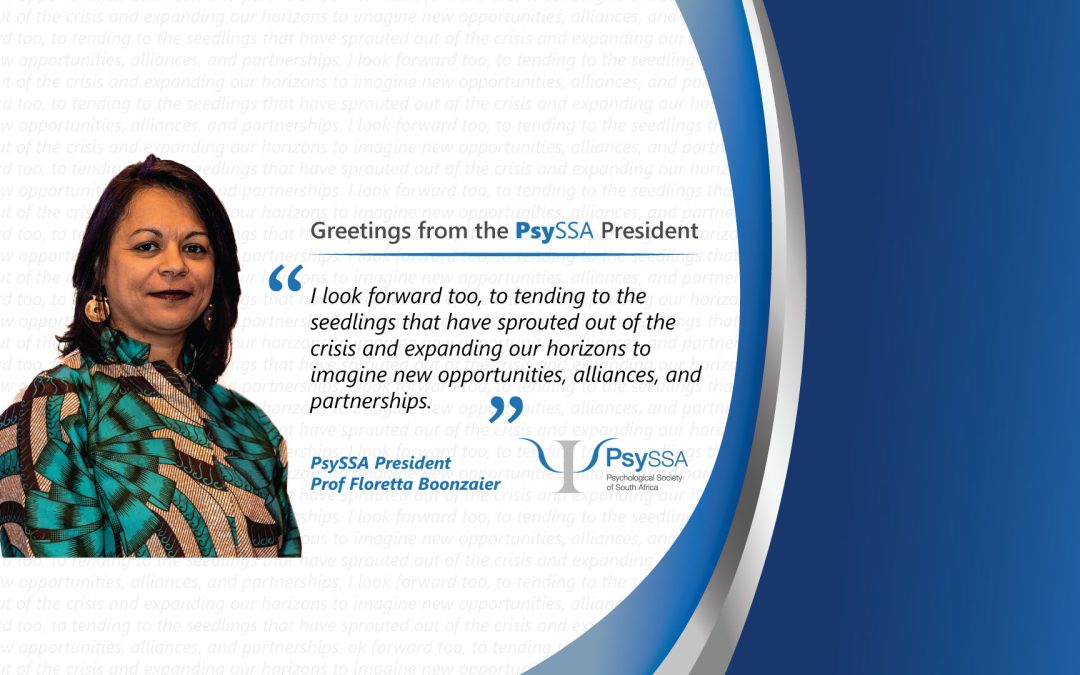Chairperson: Prof Floretta Boonzaier

Floretta Boonzaier is Professor of Psychology at the University of Cape Town, and co-Director of the Hub for Decolonial Feminist Psychologies in Africa. She is noted for her work in feminist, critical and postcolonial psychologies, research on subjectivity in relation to race, gender and sexuality, work on gendered and sexual violence, and decolonial research methodologies. She was Editor-in-Chief of the journal Psychology in Society (PINS) from 2018 to 2021. She is a past UCT Mandela Fellow at the Hutchins Center for African and African American Research at Harvard University and a past recipient of the runner up award in the South African Department of Science and Technology’s Women in Science awards, for the category of Distinguished Young Woman Researcher in the Social Sciences or Humanities. She serves on the Board of Mosaic Training, Service and Healing Centre for Women, in Cape Town and the African Gender Institute and Huma Institute at the University of Cape Town. She is also an Executive Committee Member of the Sexuality and Gender Division of the Psychological Society of South Africa. Her recent publications include the co-edited volumes Engaging youth in activism, research and pedagogical praxis. Transnational and intersectional perspectives on gender, sex and race (Routledge, 2018), Decolonial Feminist Community Psychology (Springer, 2019 ), Men, Masculinities and Intimate Partner Violence (Routledge, 2020) and the co-authored book, Pan-Africanism and Psychology in Decolonial Times (Palgrave Macmillan, in press).
Panellists

Dr Benita Moolman is a senior lecturer and programme manager at the Global Citizenship Programme at the University of Cape Town. I have a D.(Phil )in Feminist Geography from University of California, Davis (UCDavis) and a M(Phil) in Women and Gender Studies from University of the Western Cape. I have worked at the Human Sciences Research Council and at Rape Crisis Cape Town. I currently teach on social justice, decoloniality, gender-based violence and critical, community engaged research methodologies. I have researched and published on gender-based violence, masculinities, intersectional identities and feminist methodologies. I am interested in decolonial and feminist pedagogies, as well as thinking through African epistemologies and situated knowledge-making. My most recent publication is a co-edited collection with Nadia Sanger, entitled : Racism, Violence, Betrayals and New Imaginaries: Feminist Voices, 2022, University of Kwazulu Natal Press

Savuka Matyila is a gender non-conforming human rights activist born in Mdantsane, Eastern Cape. With over a decade’s experience working with civil society organisations, Savuka’s work targets legal, clinical, educational, and community-based fronts, through both local and international spheres. A degree in Sociology and Philosophy; and Gender, Religion and Health (Hons) studies inspire Savuka – to seek out possibilities of community consciousness that affect the overall psychosocial and economic livelihood of LGBTIQ+ people, and their families. Savuka hopes to progress the championing of efforts that secure the further realisation of dignity and wellbeing, inherent for everyone within the world of gender and sexual diversity.

Kaylynn Palm is a versatile reporter with a decade of experience in the field. She cut her teeth as a cub writer for the community papers straight out of university. It’s here, she believes, that she built invaluable skills and contacts while on the crime, investigative and community beat. It also laid a solid foundation for her leap towards an equally successful career in radio years later. A former Eyewitness News reporter, Kaylynn knows well the dynamics of a fast-changing and demanding news cycle. Her knack is finding the story behind the story and human behind the headlines. Nowhere is this more pertinent than when covering an array of stories including the tales of gender-base violence, the hard-felt impact of the real crime statistics and the realities of the Cape’s most marginalized and neglected families. Not just a talented wordsmith, Kaylynn’s also an acclaimed multimedia journalist. She may have hung up her radio mic, for now, but her activism hasn’t been silenced. It’s taken on a new form in her role as Gender Based Violence co-ordinator and communications officer at civil rights organization, Action Society.

Tarisai Mchuchu-MacMillan is an African-feminist, Advocate and crime and violence prevention specialist focussed on violence against women and violence against children. Tarisai, currently is the Executive Director of MOSAIC Training Services and Healing Centre for Women, an NPO that advocates for preventive laws and policies to be advanced to effectively reduce gender-based violence, in particular domestic, sexual and intimate-partner violence. Tarisai designed the SAFE-PR programme currently being piloted by MOSAIC, which is the main subject of the chapter. The SAFE-PR project is focussed on ensuring that women’s rights to safety in relationships, homes and communities is advanced by strengthening duty bearers and first responders who make up the security, justice, and psychosocial support services system in response to domestic violence (DV) and intimate-partner violence (IPV). MOSAIC coordinates localised multi-stakeholder platforms made up of first responders to domestic violence and intimate partner violence in communities and works with them to increase capacity to respond through a gender transformative lens by building relationships amongst local multi-stakeholder frontline responders in a coordinated manner that enables better service response for victims of DV/IPV, ensuring that protection orders protect and further harm is prevented. Tarisai completed her B.A. (2006) and LL.B. (2010) degrees at the University of Cape Town and is an Advocate of the High Court of South Africa.











